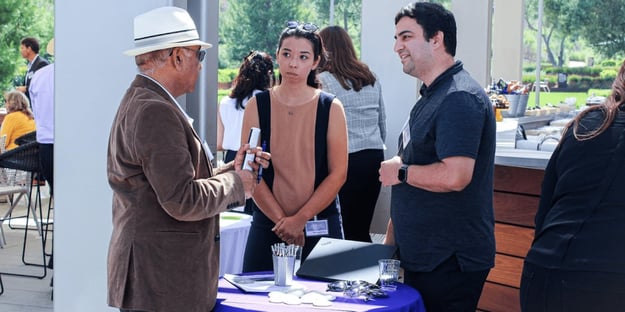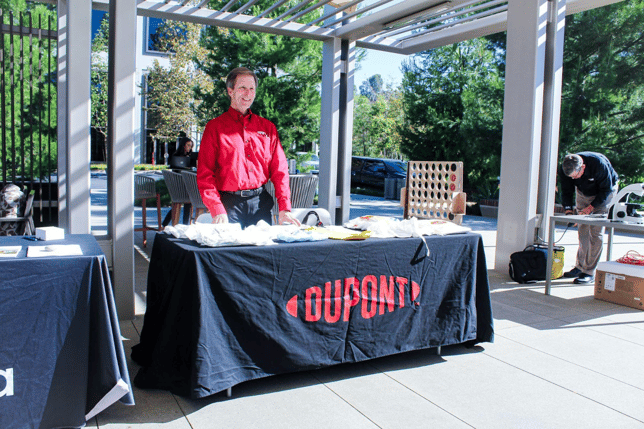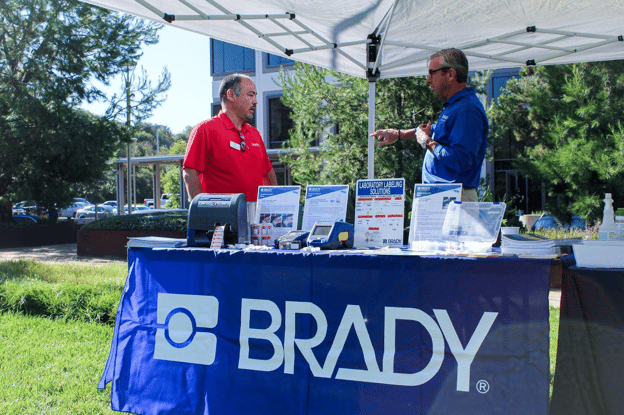An informational interview is an informal conversation where you cold contact someone working in a career field that interests you. The best way to find a cold contact and conduct an information interview starts with preliminary online research. Remember, an informational interview is not meant to be treated as a job interview. If you are doing informational interviews, you do not have a final objective to find a job opening. Instead, you aim to learn from the individual, therefore, it is less about you and more about the person who you asked to interview.
While contacting people you don’t know, it may feel awkward and somewhat strange. Making these connections do get easier. Most people end up enjoying carrying out information interviews. On top of the interviewer, those sharing their experiences enjoy taking the time to reflect on their professional experiences. Moreover, it is an opportunity to advise someone interested in their field.
Informational Interviews are important because they offer the opportunity to learn, connect, and develop professionally. For instance, an informational interview will provide firsthand information that is relevant to the realities of what it is like to work in a particular career position in your chosen field or industry. From these interviews, you can collect insider tips about what makes someone qualified for a particular position and how you can begin preparing to land this position if you feel inclined. If you want to work for a specific company or the same organization as the person you are interviewing, it can also help you know if this company will work for you based on the environment and values.
Another benefit is that you might realize in these interviews is that you are no longer interested in the career field that you thought you were. In that case, it might inspire you to seek other career paths or even learn about other options that you might not have known existed. No matter what the interviewer pulls away from the informational interview they conduct it is one of the best ways to build professional relationships and expand your network and contacts. Who knows, you never know when you might meet people who may share job leads with you in the future.

🔬 Find out: The Importance of Networking in College
To cold contact someone for an informational interview you want to know some facts about the person you are speaking with, how their conversation is relevant to you, and background knowledge of what you are speaking about with them. Knowing more about the person you are interviewing will help you keep an interesting conversation because you can then implement a few of your thoughts or initiate the conversation to move in the desired direction. To properly prepare here are six steps on how to have the best informational interview. These steps are presented in the same order that they should be carried out.
Six Steps for an Informational Interview:
The first step that needs to be taken is carefully considering the career field of interest and then targeting the field. To choose a career field that you wish to carry out your informational interviews with, choose ones that align with your interests, background, and ones relevant to your future endeavors. Start by listing your interests, putting together your background experience (you can use your resume for this portion), and writing an objective that contains your long terms goals. Having an idea of what you know and need to know about is a great roadmap to knowing who you should speak with. Use this information and search through online resources, specifically researching the career fields you have a high interest in that can provide a high return of new information.
By pre-planning and picking a specific field, this step will encourage you to continue to seek particular knowledge and hone in on a field, that can then be translated into your understanding of the field. Knowing these details, research this field more and try and collect information that could be helpful in your future discussion surrounding the field. Once you have selected the field and developed your background knowledge, you might feel more confident and inclined to pursue the informational interview. With this influence, use your passion to ensure that you are prepared for an engaging conversation.

Identify People to Interview
After you understand the specific background and the type of individual you want to interview, the person you should interview becomes more clear. With this vision, it is time to begin a search for the exact person to interview. A suggestion is to start by using your network to find the type of person who interests you. Try reaching out to your network and let them know you are pursuing contacts who you could cold contact and explain the type of person you would like to speak with. You can explain their respective background and provide the field of interest. These network contacts can be anyone from professors, friends, former employers, current employers, or any individual you know because they might know people who can lead you to the people you want to know.
The second source you should use to your advantage is your alumni network. One professor with almost 30 years of connecting students and cold-contacting individuals for informational interviews shares, “Never underestimate the power of your alumni contacts.” You can connect with these individuals on LinkedIn or through a common contact. No matter, how you choose to connect, make a list of multiple individuals who you know you can potentially speak with.
Prepare for the Interview
Once you know who you want to be interviewing, it is time to prepare for the interview. Remember the research you did on the field in step one, bring some of that information into your preparation. This research, along with details you have gathered on the individual, can all help you create a guideline that you can use to assist you in developing the conversation. Begin by practicing a brief introduction of yourself, how you hope the meeting to go, and what you hope to gain from the meeting. If it is helpful, you can treat this introduction like an elevator pitch, but instead of marketing the position you are seeking, you will be marketing what you want to learn from the cold contact.
Emphasizing the reason for the meeting and being apparent with your goals of the meeting can help the person you are interviewing understand what they should discuss. Then using all the data you collected regarding the field, the individual, and your goals, use these as a roadmap and plan a few open-ended questions to ask. It is best practice to have at least five to seven questions for a 30-minute interview. Allow the rest of the interview questions to be sparked by your interviewee’s responses because it facilitates an organic conversation.
🔬Learn About: Interview Preparation
Initiate contact
Once you have identified the person you want to interview and prepared possible questions, it is time to initiate this new connection. Start by contacting the person through email or LinkedIn. Another important tip: If you asked someone else to connect you with this person, you can ask for an introduction email. An introduction email is when your contact reaches out to one of their contacts in their network and introduces you on their behalf and the reason for the connection. If you reach out to the individual yourself, then introduce yourself and explain to them how you got on his or her name, along with why you are interested in speaking with them in particular. It is also important to emphasize that you are looking for information rather than a job.
Once you have their attention, it is time to plan the meeting date, time, and location. Some additional advice on the side is noting that you can show extra care by sending the cold contact a calendar invite once you have settled on the meeting details. The calendar invite shows respect for your cold contact’s time and your time management along with attention to detail.
Conduct the informational interview
Now that you have the meeting in place, you just need to conduct the actual informational interview. By now you should have prepared for the meeting and understand proper business etiquette, but here are a few items to consider. Attending the meeting, one should be dressed according to how others dress in the work environment. Whether meeting in-person or online, arrive at least 10 minutes early. This time buffer will give you ample time to set up and briefly prepare for the meeting one last time. The list you prepared with your questions and notes should be brought to the meeting to use as a frame of reference and reminder for the goal of the meeting. To start the meeting, restate your objective of the meeting and what kind of information and advice you hope to walk away with after the meeting. Give a summary of who you are, including your education, background experience, and the reason you are interested in the person you are interviewing.
Once you start the meeting, be prepared to direct the interview. You want to let the interview and conversation naturally flow. Therefore, while you may have a list of questions and notes from your research, encourage the interviewer to continue talking. By allowing them to share what they feel is necessary, you never know when you can learn something new that you had no idea about. Or the interviewee might be able to spark a brand new question. In the interview, always keep in mind the interviewee. Please respect their time and limit the meeting to 30 minutes or the time that was previously agreed upon.
At the end of the meeting, always ask the person if you may contact them again with other questions, whether you would like to follow up, or think of something later. You can also end every meeting by welcoming the interviewee to share other contacts of people in their network that they feel could provide additional information or a different perspective. Depending on the reason for the informational interview, you might even bring your resume that you can use to ask for input. Please, only ask for advice on your resume at the end, and use the beginning of your time with the interviewee to establish a comfortable rapport.

🔬Learn: Proper Business Etiquette
Follow Up
At the end of the meeting, always keep records. The record should include information such as who you spoke with, their contact information, and highlights regarding what was discussed. You might even make a note of what new questions you now have after this conversation and any important names that were provided along with their contacts. You might use these contacts later to continue your expanding upon your information. The last item you should include in your notes is the next steps that you plan to take after reflecting on the interview. Apart from every aspect you gained from the interview, it is best practice to send a thank-you note, whether it be through a card or via email.
How you decide to show your appreciation can make a big impact later in your career because it builds your reputation. Finding a way to show your appreciation for their time and the information they provided becomes a judgment of your character. Secondly, you want to keep all of this information because you never know when you might need it. Keeping in touch with the person is helpful if you ever need their contact again. More so than contacts, it is nice to let others know how their help supported you. Keeping these relationships ensures you are adding a thoughtful person to your network.
Download The Ultimate Guide to Wet Lab Incubators in Southern California, a handbook to assist life science start-ups through the entire decision-making process to find wet lab space.
Download Now